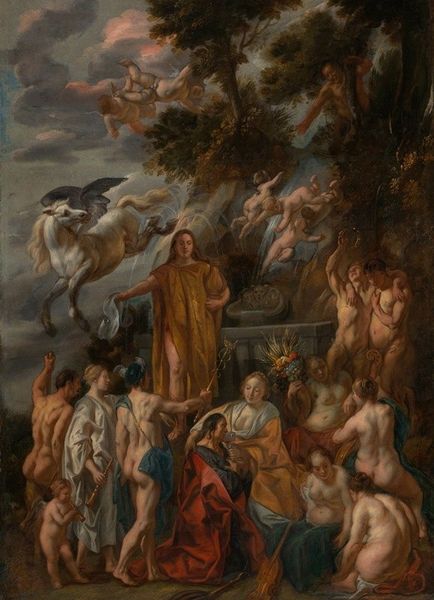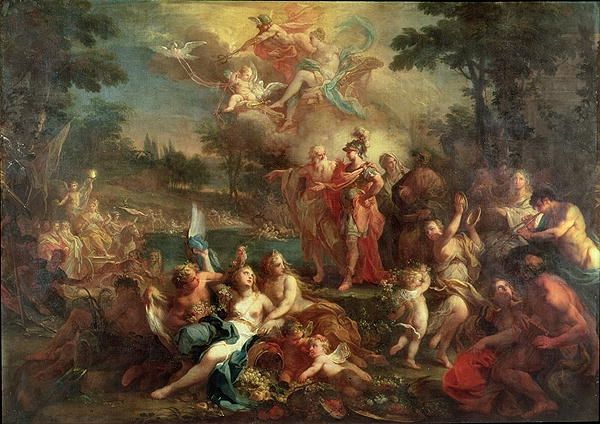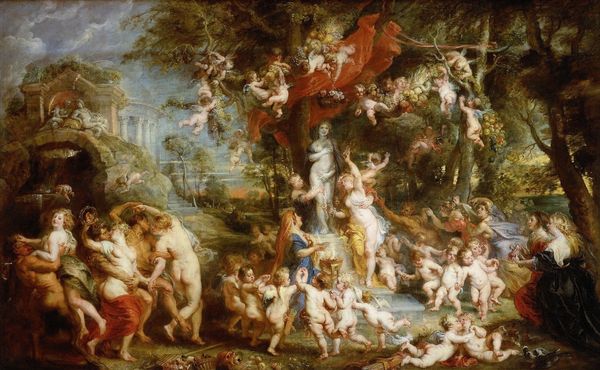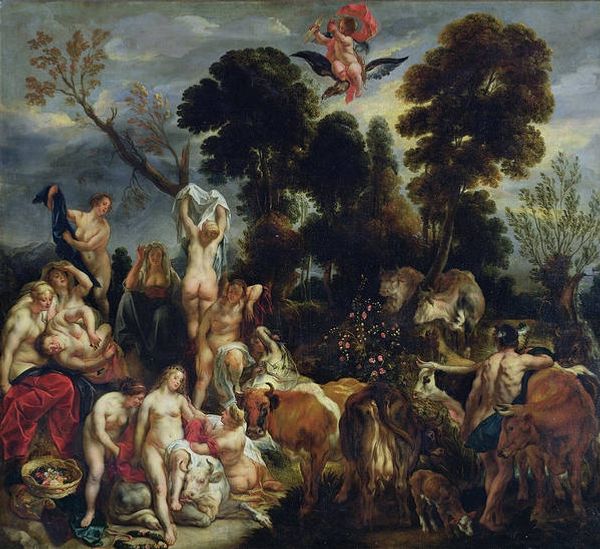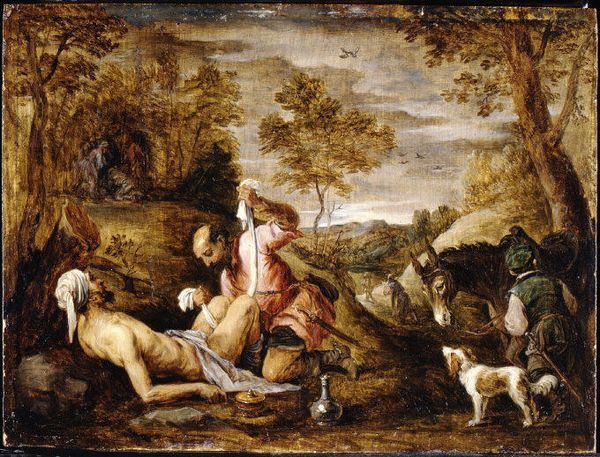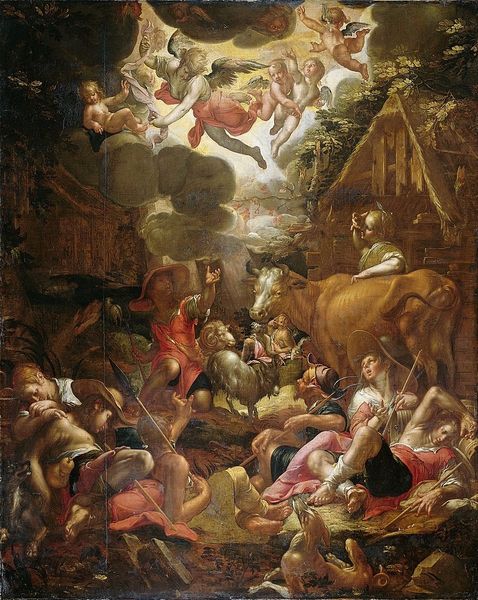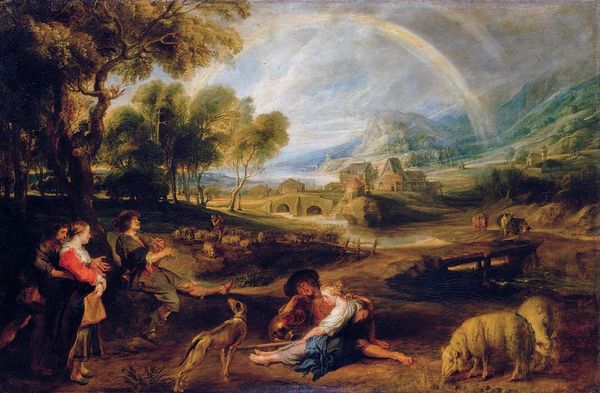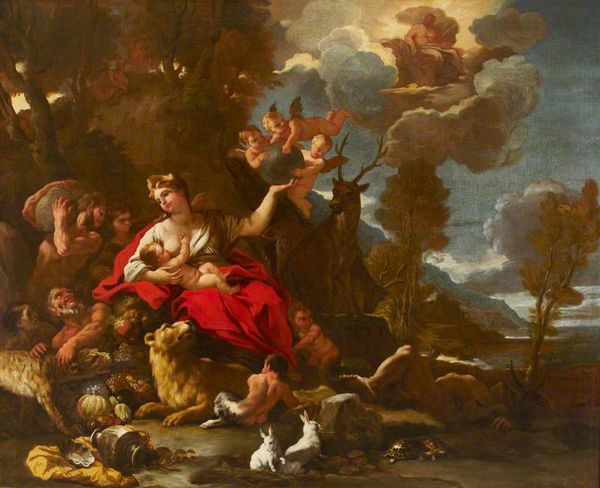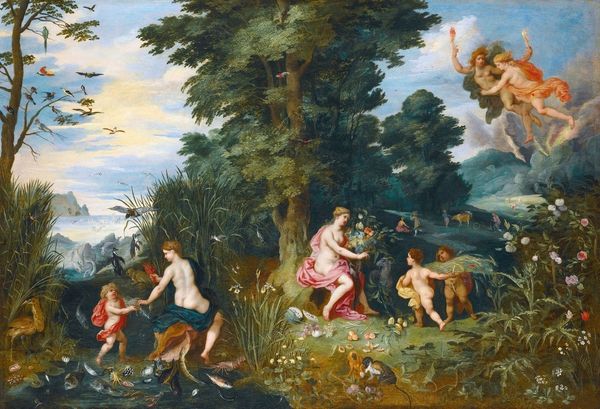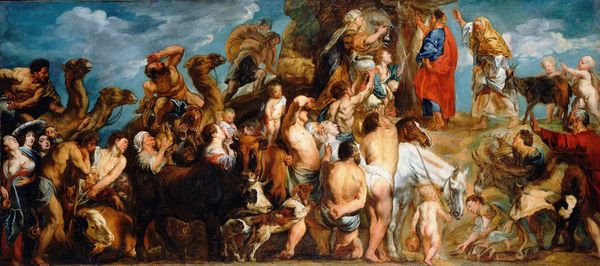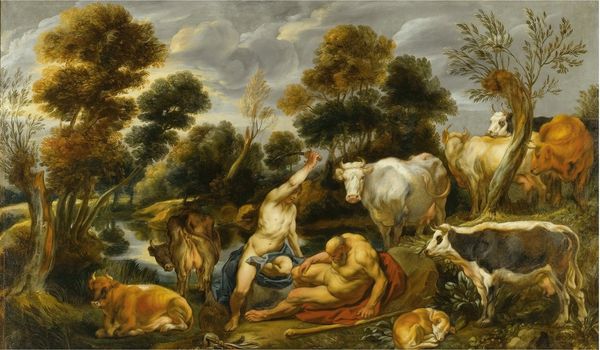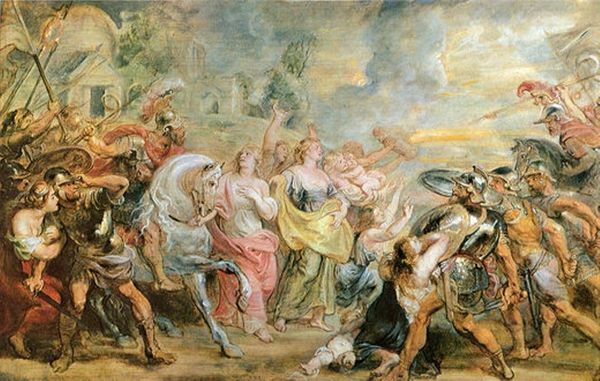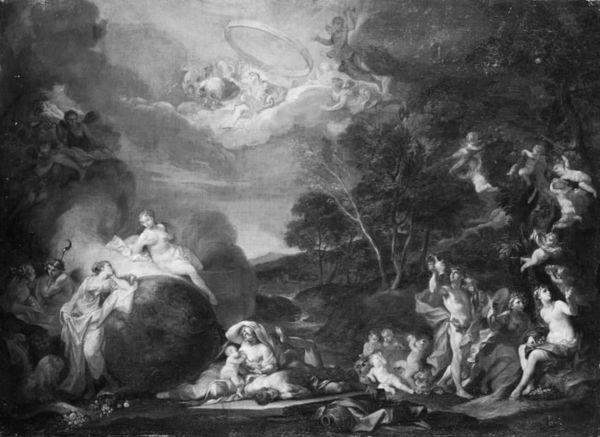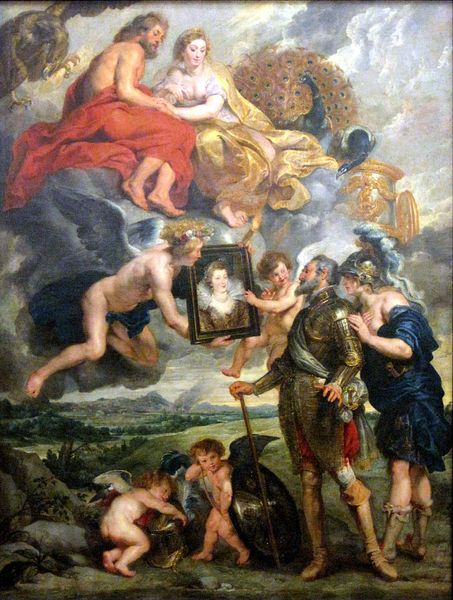
painting, oil-paint
#
allegory
#
baroque
#
painting
#
oil-paint
#
landscape
#
figuration
#
oil painting
#
mythology
#
history-painting
Dimensions: 152 x 226 cm
Copyright: Public domain
Editor: So this is "Landscape with Saint George and the Dragon," an oil painting created around 1630 by Peter Paul Rubens. The first thing that strikes me is the chaotic but vibrant energy, a kind of dance between death and deliverance. What do you see in this piece? Curator: I'm immediately drawn to the cultural memory embedded within this seemingly simple scene. Consider Saint George – a symbol of Christian heroism. But his dragon slaying is far older, isn't it? Rooted perhaps, in primordial stories of conquering the unknown, the untamed. Editor: So you're saying the image pulls from very old stories? Curator: Exactly! It's a palimpsest. Rubens layers Christian narrative upon older, perhaps pagan, anxieties about the wilderness, the Other. Notice, for example, how the figures in the background seem to huddle together, trapped within a grotto, awaiting rescue. It’s a primal fear of being consumed. What of the slain, the bodies littering the ground? What emotions do those elicit in you? Editor: Definitely unsettling. They add a gruesome realism that contrasts with the idealized figures. It's a striking juxtaposition. Is that meant to symbolize something deeper? Curator: Indeed. Rubens understood the psychological power of contrast. He plays with the terror, making Saint George's triumph all the more poignant. Ask yourself: What is a hero without death to overcome? His glory, amplified through the stark reminder of mortality. Victory, always casts a shadow. Editor: It's incredible how much depth there is beneath the surface. Thanks! Curator: My pleasure. Visual culture speaks, if you listen closely. It resonates, doesn't it?
Comments
No comments
Be the first to comment and join the conversation on the ultimate creative platform.
